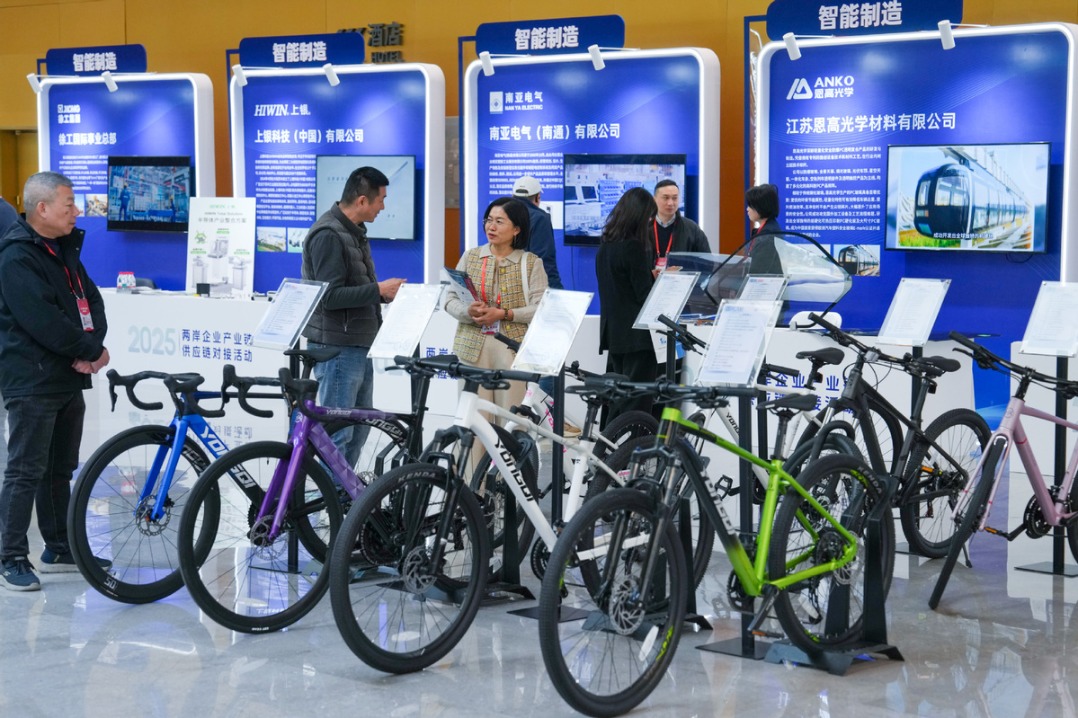Poll: Partisan hostility, frustration with two US parties growing
By AI HEPING in New York | China Daily Global | Updated: 2022-08-24 11:02

Americans' level of partisan hostility is increasing with neither the Democratic nor the Republican party very popular with the public, and there is a desire for more political parties, especially among younger Americans, according to a survey by the Pew Research Center released Tuesday.
Democrats are more likely than Republicans to want more political parties: 38 percent of those who identify with the Democratic Party say that describes their views extremely or very well, compared with 21 percent of Republicans.
The strongest sentiment for more parties was expressed among independents and others who don't identify with a party: 48 percent say it describes their views extremely or very well, including 48 percent of those who lean Republican and 53 percent of those who lean Democratic.
As for popularity with the American public, roughly 4 in 10 (41 percent) have a very or somewhat favorable view of the Democratic Party, while fewer (37 percent) have a favorable impression of the Republican Party.
Overall, 61 percent of Americans hold an unfavorable view of the Republican Party, and 57 percent have a negative view of the Democratic Party. Roughly 72 percent of Americans view at least one of the parties favorably.
But the share who dislike both, 27 percent, is the highest it has been in Pew's data going back to 1994, when just 6 percent felt that way.
Americans' level of partisan hostility is also rising, according to the survey. Over the past six years, the poll finds, Democrats and Republicans have both grown increasingly likely to view members of the opposing party negatively.
In the latest poll, majorities of both sides describe each other as being more closed-minded, dishonest, immoral and unintelligent than other Americans, with Republicans adding "lazy".
The survey also showed a striking shift in partisans' moral assessments.
Nearly three-quarters of Republicans (72 percent) now say that Democrats are more immoral than other Americans, up from 47 percent in 2016. A 63 percent majority of Democrats say that Republicans are more immoral than other Americans, up from 35 percent in 2016.
Among the areas of perceived difference between the two parties, a 57 percent majority say that the Democratic Party can be described as "respectful and tolerant of different types of people", while just 38 percent say the same of the GOP; the GOP is also more likely to be seen as too frequently making excuses for members with hateful views (61 percent vs 51 percent).
There are smaller divides on characteristics such as governing in an honest and ethical way — just 43 percent think this applies well to the Democrats, and just 37 percent to the Republicans.
Pew Research surveyed 6,174 US adults from June 27-July 4, using a nationally representative online panel. Results for the full sample have a margin of sampling error of +/- 1.8 percentage points.
The Democratic Party has advantages over the GOP on several traits and attributes, particularly when it comes to tolerance for different types of people and not making excuses for hateful views among members of their own party.
About 6 in 10 adults (57 percent) say the phrase "respectful and tolerant of different types of people" describes the Democratic Party very or somewhat well, compared with 38 percent who say it describes the Republican Party.
There are more modest differences in views of the parties' respect for the nation's democratic institutions. About half of adults (51 percent) say "respects the country's democratic institutions and traditions" describes the Democratic Party very or somewhat well, while 45 percent say it applies to the GOP.
And neither party gets high ratings for honesty: 43 percent say the phrase "governs in an honest and ethical way" describes the Democratic Party, compared with 37 percent who characterize the Republican Party that way.
On political polarization in the US, a report in 2021 designated US democracy as "backsliding" for the first time and found that the country faces particular challenges in effective legislative bodies and declines in the freedoms of expression and assembly.
The report by the International Institute for Democracy and Electoral Assistance (IDEA) on the Global State of Democracy defines backsliding as democratic nations experiencing "gradual but significant weakening of checks on government and civil liberties".
























